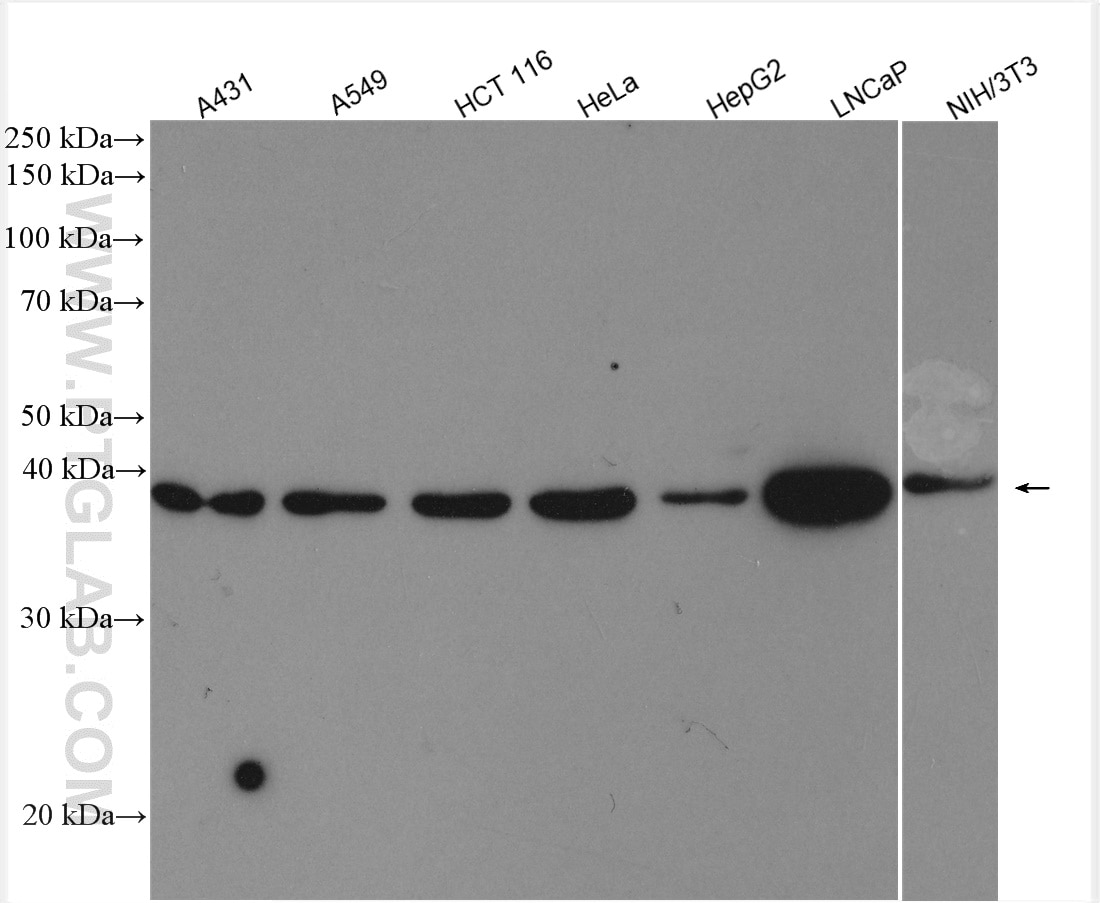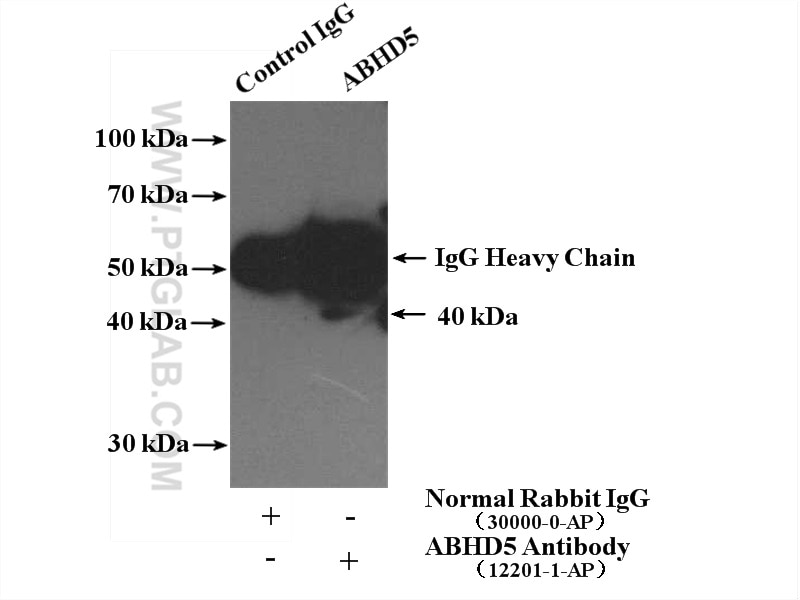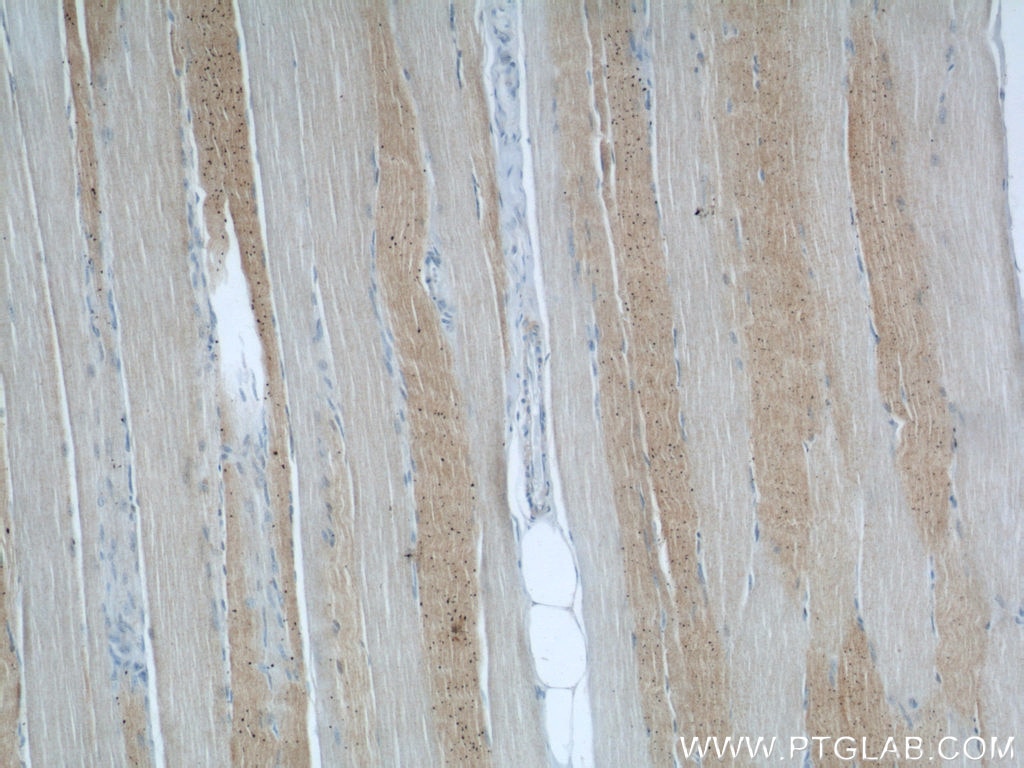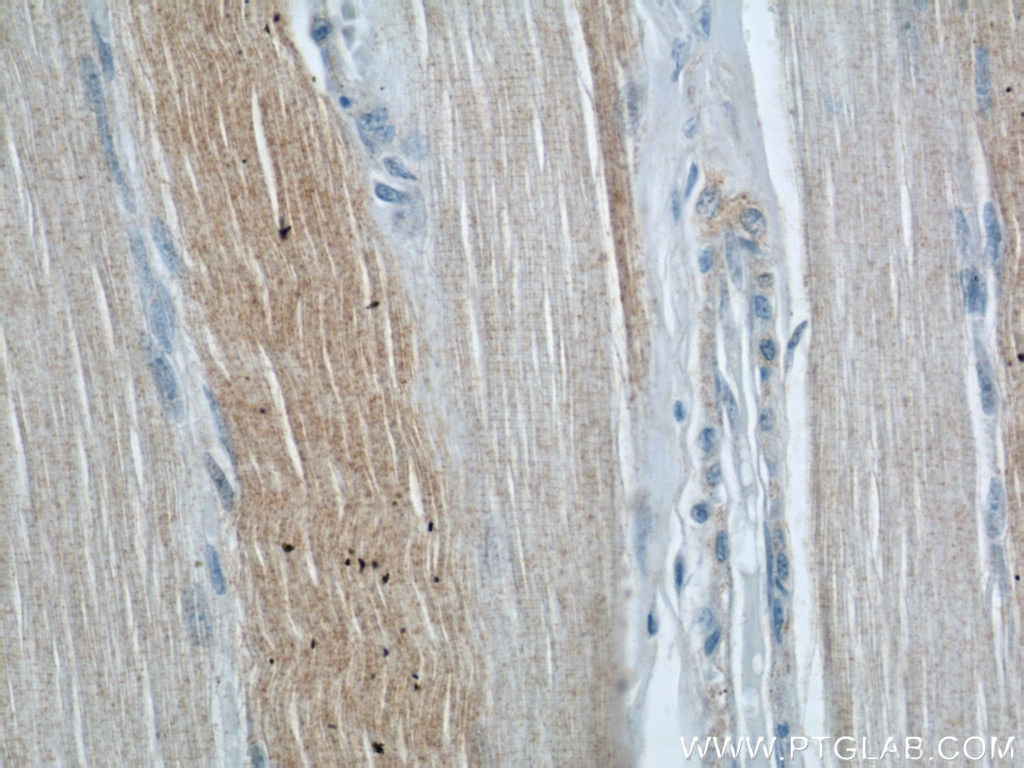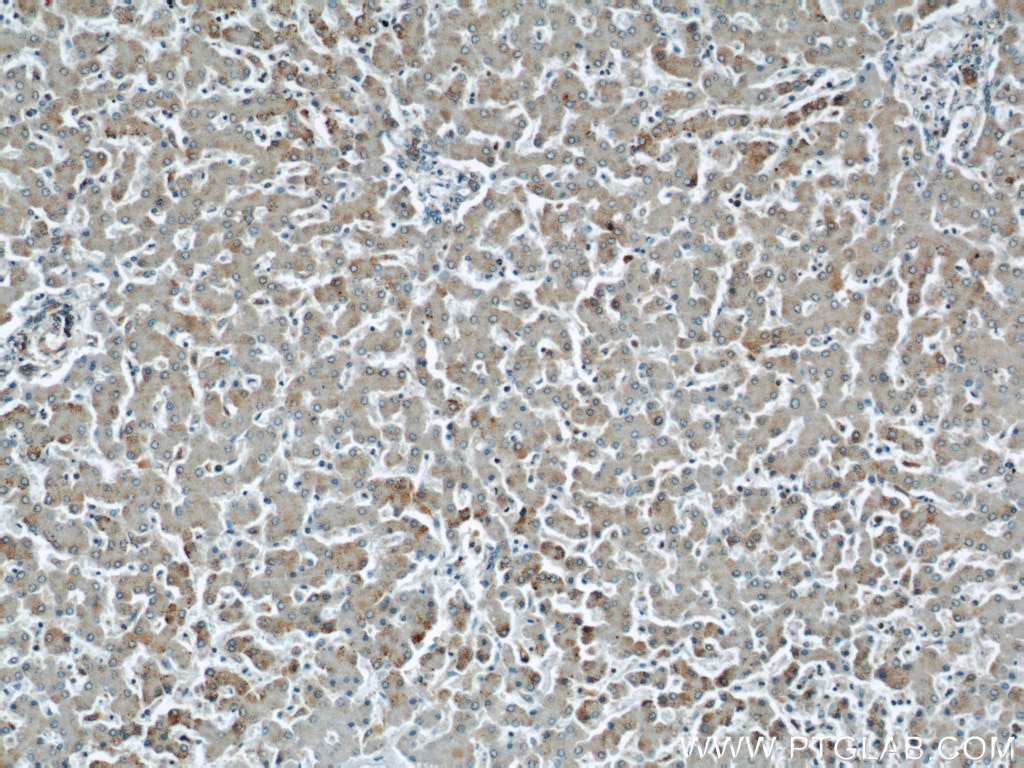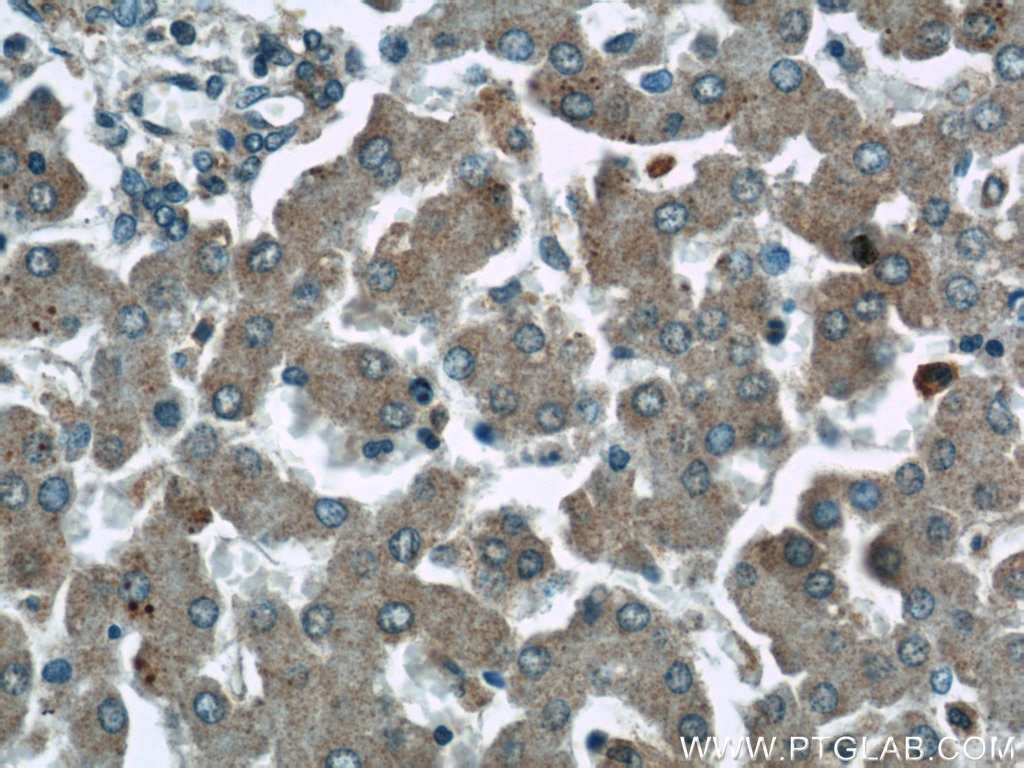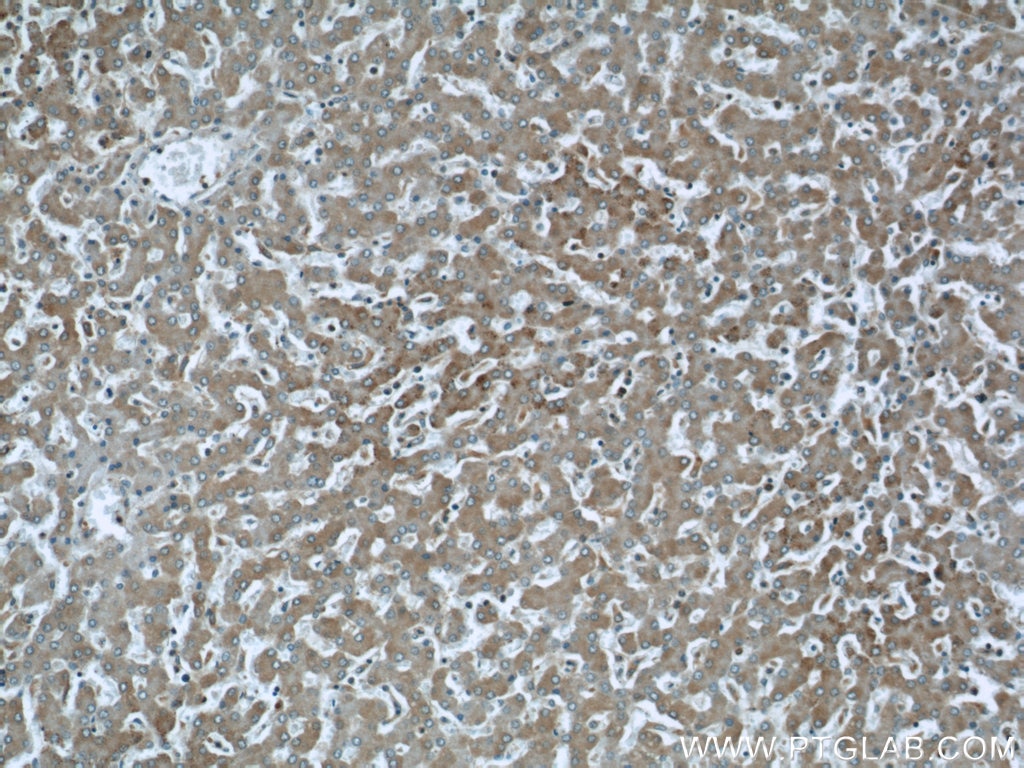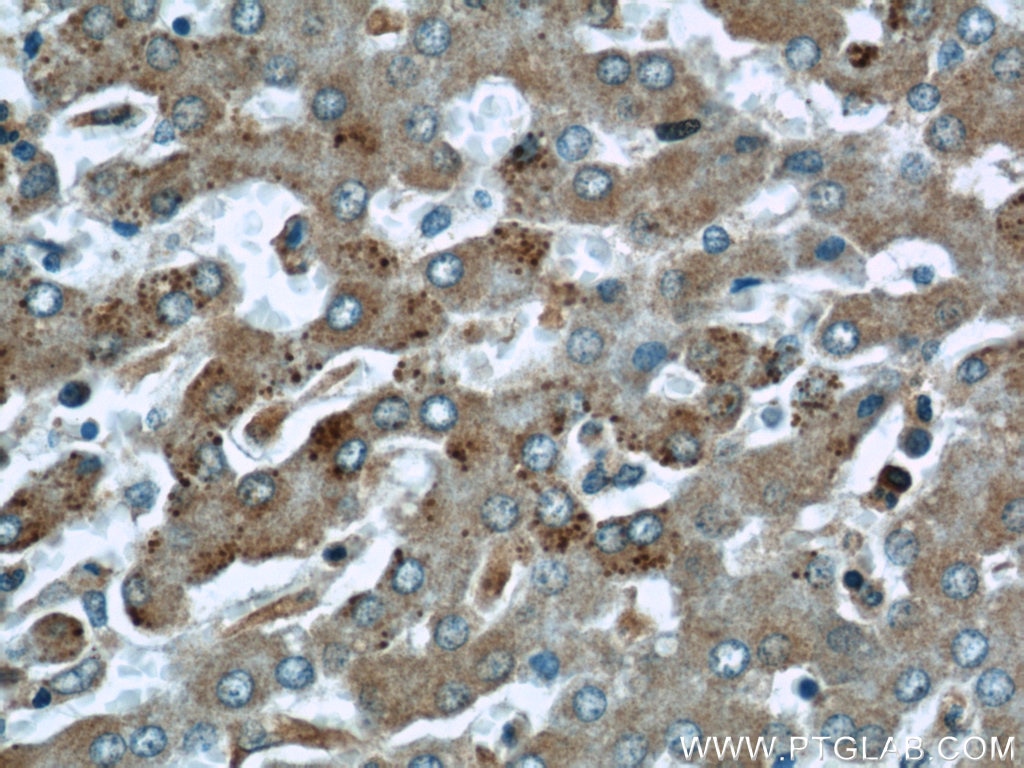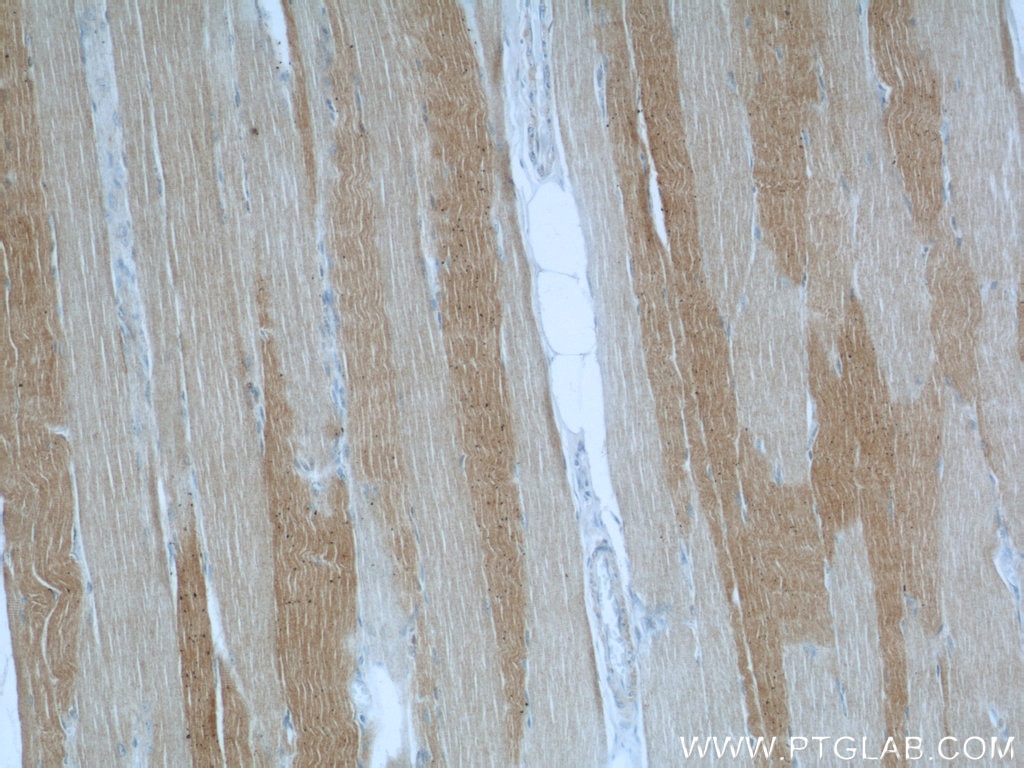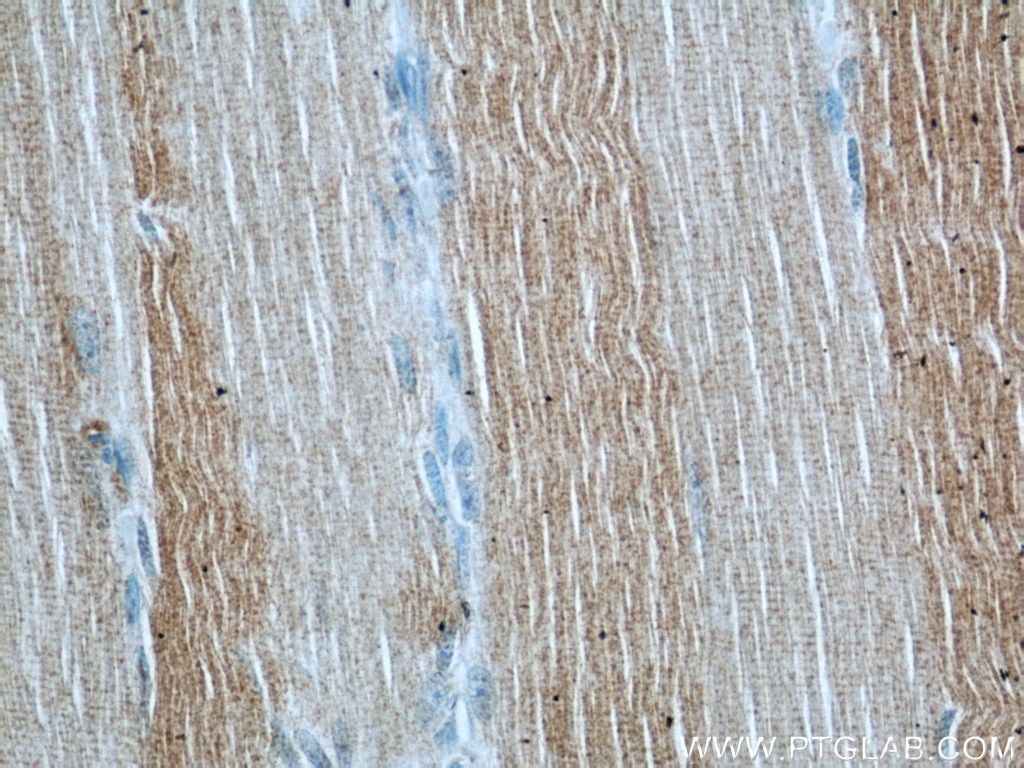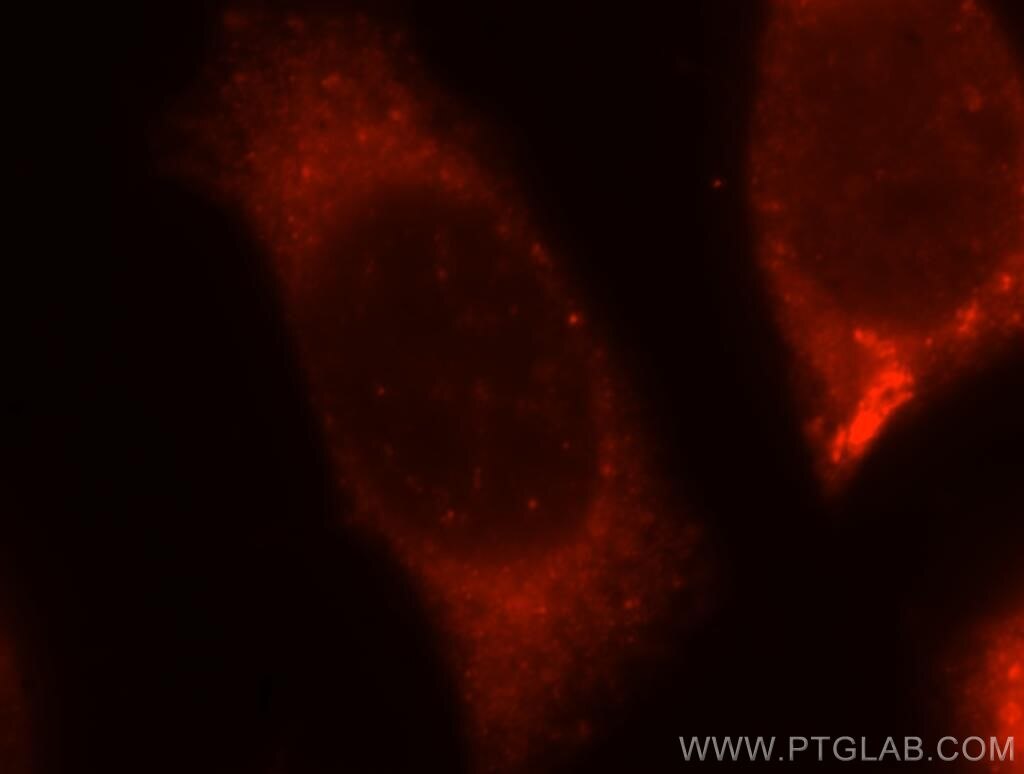- Featured Product
- KD/KO Validated
ABHD5 Polyklonaler Antikörper
ABHD5 Polyklonal Antikörper für WB, IHC, IF/ICC, IP, ELISA
Wirt / Isotyp
Kaninchen / IgG
Getestete Reaktivität
human, Maus und mehr (1)
Anwendung
WB, IHC, IF/ICC, IP, CoIP, ELISA
Konjugation
Unkonjugiert
Kat-Nr. : 12201-1-AP
Synonyme
Galerie der Validierungsdaten
Geprüfte Anwendungen
| Erfolgreiche Detektion in WB | A431-Zellen, A549-Zellen, HCT 116-Zellen, HeLa-Zellen, HepG2-Zellen, LNCaP-Zellen, NIH/3T3-Zellen |
| Erfolgreiche IP | Jurkat-Zellen |
| Erfolgreiche Detektion in IHC | humanes Skelettmuskelgewebe, humanes Lebergewebe Hinweis: Antigendemaskierung mit TE-Puffer pH 9,0 empfohlen. (*) Wahlweise kann die Antigendemaskierung auch mit Citratpuffer pH 6,0 erfolgen. |
| Erfolgreiche Detektion in IF/ICC | MCF-7-Zellen |
Empfohlene Verdünnung
| Anwendung | Verdünnung |
|---|---|
| Western Blot (WB) | WB : 1:1000-1:6000 |
| Immunpräzipitation (IP) | IP : 0.5-4.0 ug for 1.0-3.0 mg of total protein lysate |
| Immunhistochemie (IHC) | IHC : 1:20-1:200 |
| Immunfluoreszenz (IF)/ICC | IF/ICC : 1:10-1:100 |
| It is recommended that this reagent should be titrated in each testing system to obtain optimal results. | |
| Sample-dependent, check data in validation data gallery | |
Veröffentlichte Anwendungen
| KD/KO | See 1 publications below |
| WB | See 24 publications below |
| IF | See 3 publications below |
| IP | See 2 publications below |
| CoIP | See 1 publications below |
Produktinformation
12201-1-AP bindet in WB, IHC, IF/ICC, IP, CoIP, ELISA ABHD5 und zeigt Reaktivität mit human, Maus
| Getestete Reaktivität | human, Maus |
| In Publikationen genannte Reaktivität | human, Hausschwein, Maus |
| Wirt / Isotyp | Kaninchen / IgG |
| Klonalität | Polyklonal |
| Typ | Antikörper |
| Immunogen | ABHD5 fusion protein Ag2840 |
| Vollständiger Name | abhydrolase domain containing 5 |
| Berechnetes Molekulargewicht | 349 aa, 39 kDa |
| Beobachtetes Molekulargewicht | 39 kDa |
| GenBank-Zugangsnummer | BC021958 |
| Gene symbol | ABHD5 |
| Gene ID (NCBI) | 51099 |
| Konjugation | Unkonjugiert |
| Form | Liquid |
| Reinigungsmethode | Antigen-Affinitätsreinigung |
| Lagerungspuffer | PBS mit 0.02% Natriumazid und 50% Glycerin pH 7.3. |
| Lagerungsbedingungen | Bei -20°C lagern. Nach dem Versand ein Jahr lang stabil Aliquotieren ist bei -20oC Lagerung nicht notwendig. 20ul Größen enthalten 0,1% BSA. |
Hintergrundinformationen
ABHD5, also named as NCIE2 and CGI-58, belongs to the peptidase S33 family. ABHD4/ABHD5 subfamily. It is a Lysophosphatidic acid acyltransferase which functions in phosphatidic acid biosynthesis. ABHD5 may regulate the cellular storage of triacylglycerol through activation of the phospholipase PNPLA2. It is involved in keratinocyte differentiation. ABHD5 is an evolutionarily conserved protein that acts as a potent activator of Atgl. Abhd5 is expressed in several tissues that lack Plin , raising the possibility that this co-activator might interact with additional PAT proteins. Abhd5 and Mldp are highly colocalized on individual lipid droplets.(PMID:19064991) Defects in ABHD5 are the cause of Chanarin-Dorfman syndrome (CDS).
Protokolle
| Produktspezifische Protokolle | |
|---|---|
| WB protocol for ABHD5 antibody 12201-1-AP | Protokoll herunterladen |
| IHC protocol for ABHD5 antibody 12201-1-AP | Protokoll herunterladen |
| IF protocol for ABHD5 antibody 12201-1-AP | Protokoll herunterladen |
| IP protocol for ABHD5 antibody 12201-1-AP | Protokoll herunterladen |
| Standard-Protokolle | |
|---|---|
| Klicken Sie hier, um unsere Standardprotokolle anzuzeigen |
Publikationen
| Species | Application | Title |
|---|---|---|
Nat Commun O-GlcNAc transferase inhibits visceral fat lipolysis and promotes diet-induced obesity. | ||
Cell Death Differ Plin2-mediated lipid droplet mobilization accelerates exit from pluripotency by lipidomic remodeling and histone acetylation. | ||
Proc Natl Acad Sci U S A Spatial regulation of UBXD8 and p97/VCP controls ATGL-mediated lipid droplet turnover. | ||
Proc Natl Acad Sci U S A Perilipins 2 and 3 lack a carboxy-terminal domain present in perilipin 1 involved in sequestering ABHD5 and suppressing basal lipolysis. | ||
J Cell Biol ORP5 localizes to ER-lipid droplet contacts and regulates the level of PI(4)P on lipid droplets. | ||
Elife Inhibition of intracellular lipolysis promotes human cancer cell adaptation to hypoxia. |
